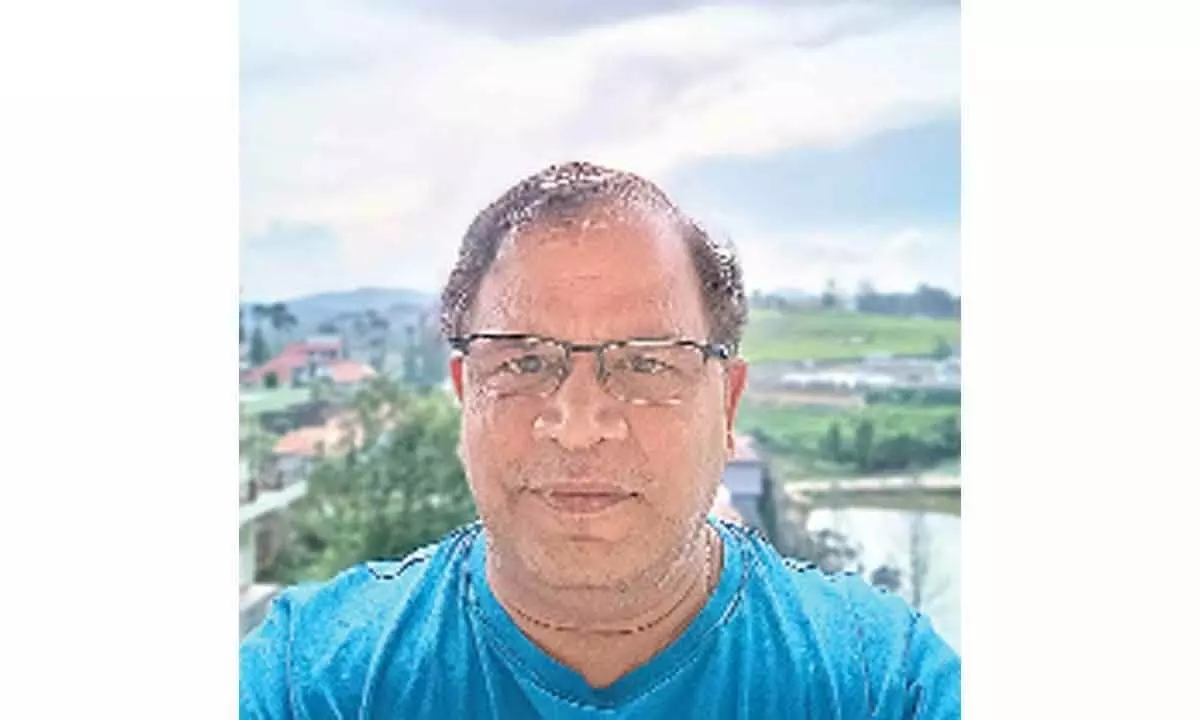Meet CSN Murthy who quit his high-paying job to develop drug that can kill hard-to-treat cancers
Makes significant progress in development of compounds, targeting towards various solid tumours like lung, breast, pancreatic and ovarian cancers
image for illustrative purpose

SatyaRX Pharma Innovations Pvt Ltd is a drug discovery company specifically focussing on two approaches in cancer drug research. One approach is preventing repair of damaged DNA in fast-growing cancer cells, and causing their death, while the other is to target specific genes that cause cancer, called oncogenes. Murthy Chavali (CSN), who worked with many pharma companies including Gland Pharma and Dr Reddy’s subsidiary Aurigene, has started this company in 2020. In an exclusive interview with Bizz Buzz, SatyaRX Pharma Innovations Pvt Ltd Founder and CEO CSN Murthy tells about his new drugs for different cancers such as lung, breast and pancreatic cancers
How the journey of Satyarx Pharma Innovations started? What inspired you to launch the startup during the pandemic period?
I had decided to leave my position as CEO at Aurigene during July 2019, and started preparing for the launch of Satya immediately thereafter. By the end of 2019, the pandemic had started, but I decided that I will still go ahead, while changing the operating strategy during the initial period to a complete out-sourced model.
Thus, even before we started our labs, I outsourced the chemical synthesis and biological assay work to a few companies in India and China that continued to be operational, as these were exempt from closures being in the life sciences business. However, as it became evident by the end of 2020 that there would be additional Covid waves, I decided that I will take a chance and set up my own labs for better control of the quality of science.
Thus, in the midst of the pandemic, we set up all necessary processes in place for safety, and went ahead and built our labs between December 2020 and May 2021, in a remarkably short time, we set up the labs, and were operational from mid-May, 2021.
How fruitful was your research on oncology drugs? What are the drugs you have discovered so far? How many are there in the pipeline?
We have made significant progress in development of our compounds, and our lead programmes targeting proteins called RAD51 and SOS1 are in IND-enabling studies. These are targeted towards various solid tumours like lung, breast, pancreatic and ovarian cancers. The compounds look quite effective in pre-clinical models, and appear to be having a good safety margin, thus enabling us to plan for human trials once we obtain Regulatory clearances for the same.
We also have earlier stage programmes targeting proteins such as PKMYT1, PARG, KIF18A and few undisclosed targets in development. All the projects are targeted towards different solid cancers.
Are your products ready to go to the market? Are you looking for any partners to scale up your research or launch the new drugs?
Pharma research is typically over 7-10 years, before we are able to get approvals for marketing. We are still early in our journey. We expect to partner on some of our initial projects, and eventually also clinically develop some of our projects so as to bring them to patients. We will eventually have a mix of partnered drugs and own drugs.
Where do you have the R&D and manufacturing facilities? Are you planning to raise funds in the near future for the expansion?
We have our R&D facility at Nacharam in Hyderabad, close to IICT and CCMB. We do have plans to raise funds in the near future.
How many patents have you filed till now? How many are still pending? What is the marketing strategy ahead?
The three-year-old company has filed six patents together for three of our programmes. It anticipates filing 3-4 patents per year, going forward. As mentioned earlier, we will partner some of our projects with global pharma/ biotech companies.
What is your team size, particularly in the R&D? How about the hiring plans of the company?
We have a team size of around 50 employees; a majority of them are biologists and chemists, including about 10 PhD holders. We do expect to hire more people as we add additional projects, and for clinical development, by the end of 2023.
What are the challenges of oncology drug research in India? How startups like Satyarx are facing them?
Oncology drug research is a challenge globally, including in India. We do face significant funding constraints. Also, we do not find many partners in India for licensing, and thus have to look to the US and Europe for the same. Supportive infrastructure for translational biology is also very scarce in India. Surprisingly also, Indian CROs are often more expensive than their counterparts elsewhere in Asia, for specialised pharmacology or toxicology studies.
Drug discovery is a lengthy process taking more time and money. How do you source funds for R&D and other operations?
We are funded for our current requirements through our own sources.
Are you anticipating any support from the government for the ongoing research on precision oncology?
We do hope so, though so far we have not availed any support from the government in terms of funding.
Let us know about the awards and accolades so far received by the startup.
We have been awarded as one of the top five startups at BioAsia 2023 and also at the Technology Showcase 2022 at AIC-CCMB. We have presented at AACR and ESMO conferences as well, during 2022. We expect to have additional poster presentations in Europe and the US during 2023.
(This is the thirteenth article of WTC Shamshabad- BioAsia 2023 Series, a collaborative effort of World Trade Center - Shamshabad and BioAsia, Asia’s largest life-sciences and healthcare forum, to highlight the achievements and accelerate growth in the Life Sciences industry)

